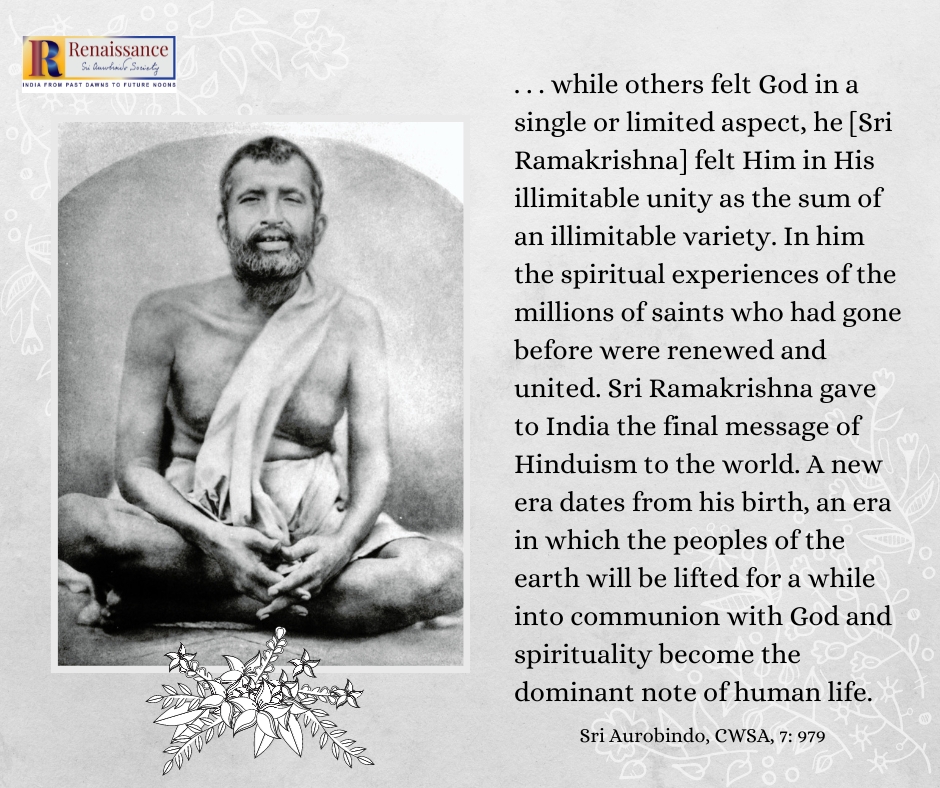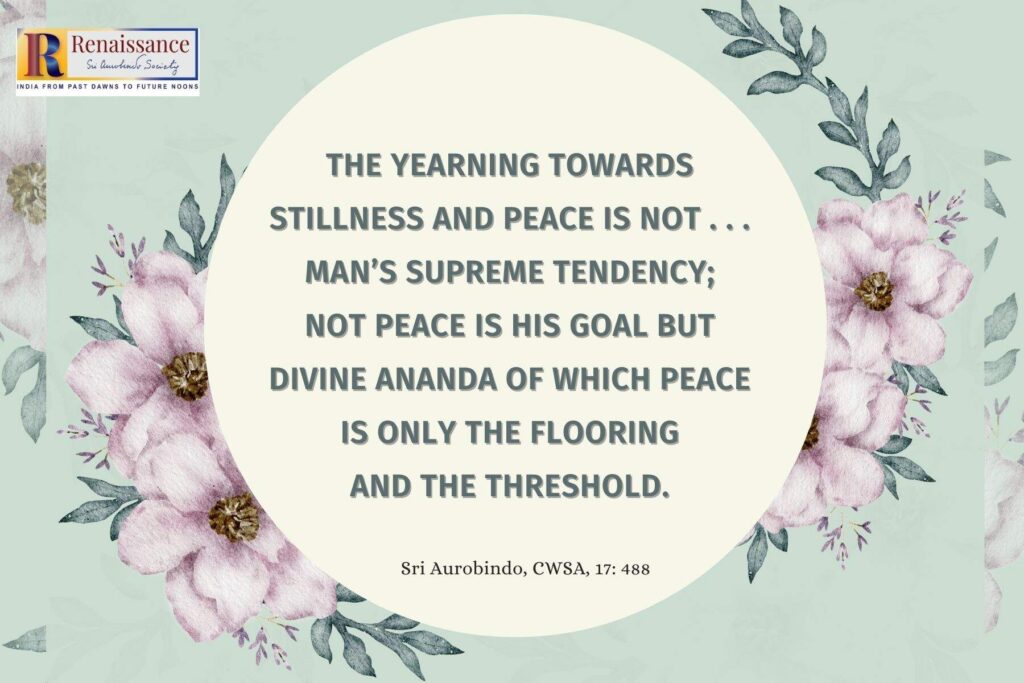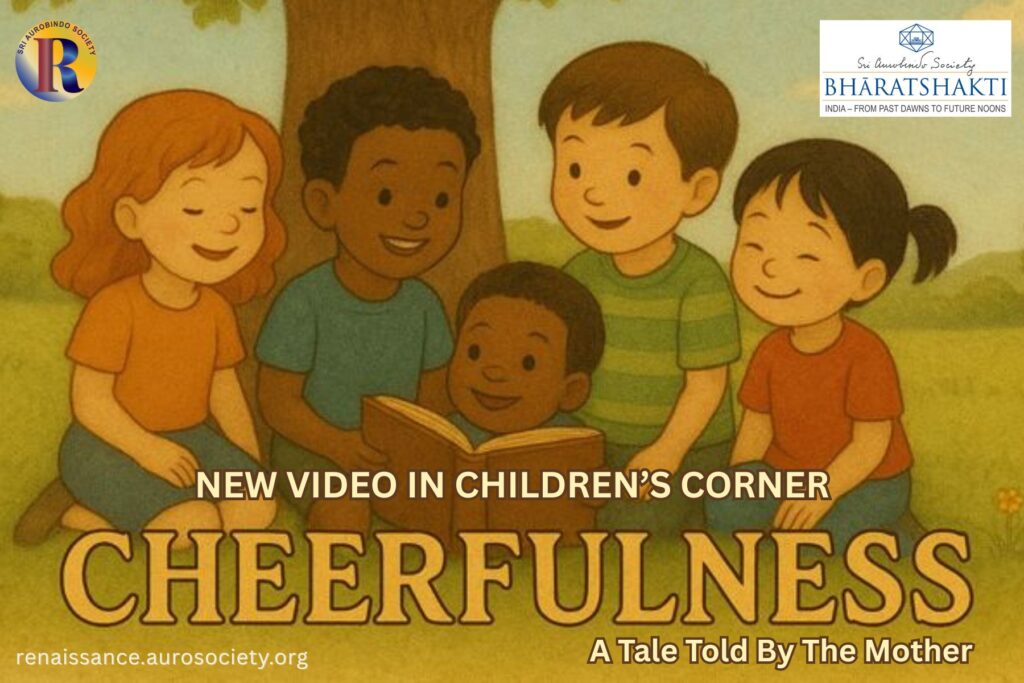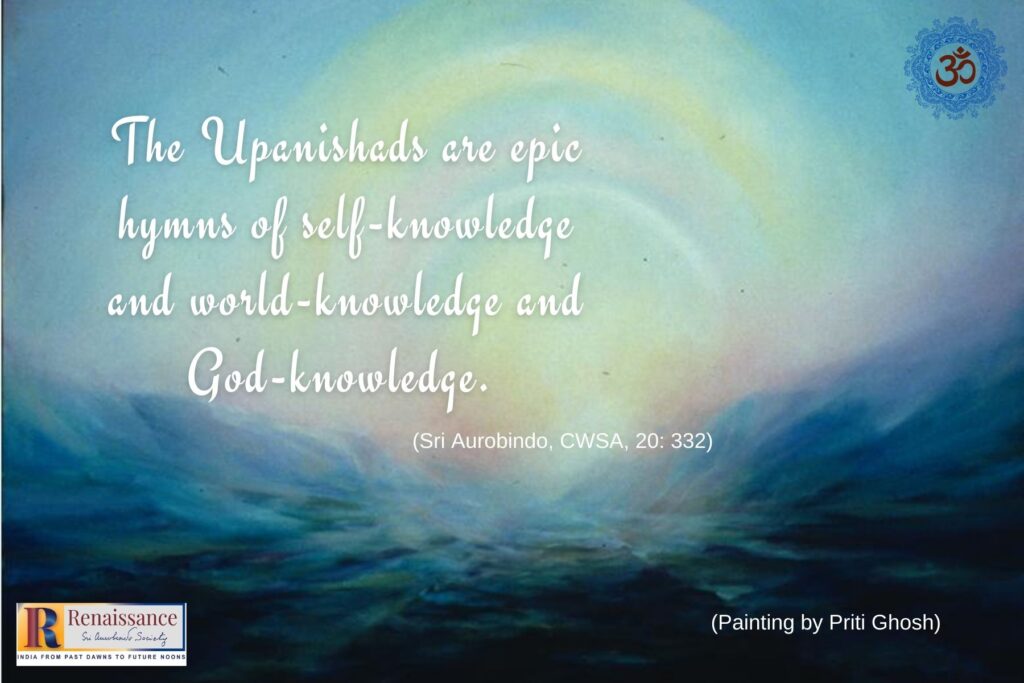Vol. III, Issue 7
Author: Sri Ramakrishna
Editor’s Note: We feature two selections from Tales and Parables of Sri Ramakrishna, which bring out two distinct but complementary aspects of peace.
The first reminds us of the significance of peace one acquires when one gives up the endless pursuit of worldly pleasures. The second speaks of the peace and joy that are the outcome of focused and persistent effort one puts in when pursuing a goal. Sri Ramakrishna points a new dimension of renunciation through this parable.


The Bane of Worldliness: The Root of All Troubles
In a certain place the fishermen were catching fish. A kite swooped down and snatched a fish. At the sight of the fish, about a thousand crows chased the kite and made a great noise with their cawing.
Whichever way the kite flew with the fish, the crows followed it. The kite flew to the south and the crows followed it there. The kite flew to the north and still the crows followed after it. The result was the same when the kite went east and west.
As the kite began to fly about in confusion, lo, the fish dropped from its mouth. The crows at once let the kite alone and flew after the fish.
Thus relieved of its worries, the kite sat on the branch of a tree and thought: “That wretched fish was at the root of all my troubles. I have now got rid of it and therefore ‘I am at peace.'”
As long as a man has the fish, that is, worldly desires, he must perform actions and consequently suffer from worry, anxiety, and restlessness. No sooner does he renounce these desires than his activities fall away and he enjoys peace of soul.

The real renunciation—for renunciation, sannyāsa, there must be—is not the fleeing from works, but the slaying of ego and desire. The way is to abandon attachment to the fruit of works even while doing them, and the way is to recognise Nature as the agent and leave her to do her works and to live in the soul as the witness and sustainer, watching and sustaining her, but not attached either to her actions or their fruits.
~ Sri Aurobindo, CWSA, Vol. 19, p. 129


Hold Hard Your Spade
At one time there was a drought in a certain part of the country. The farmers began to cut long channels to bring water to their fields.
One farmer was stubbornly determined. He took a vow that he would not stop digging until the channel connected his field with the river. He set to work. The time came for his bath, and his wife sent their daughter to him with oil. Father,” said the girl, “it is already late. Rub your body with oil and take your bath.”
“Go away,” thundered the farmer. “I have too much to do now.”
It was past midday and the farmer was still at work in his field. He didn’t even think of his bath. Then his wife came and said: “Why haven’t you taken your bath? The food is getting cold. You overdo everything. You can finish the rest tomorrow or even today after lunch.”
The farmer scolded her furiously and ran at her, spade in hand, crying: “What! Have you no sense? There’s no rain. The crops are dying. What will the children eat? You’ll all starve to death. I have taken a vow not to think of bath and food today before I bring water to my field.”
The wife saw his state of mind and ran away in fear.
Through a whole day’s backbreaking labour the farmer managed by evening to connect his field with the river. Then he sat down and watched the water flowing into his field with a murmuring sound. His mind was filled with peace and joy.
He went home, called his wife and said to her, “Now give me some oil and prepare a smoke.” With serene mind he finished his bath and meal, and retired to bed, where he snored to his heart’s content. The determination he showed is an example of strong renunciation.
Now, there was another farmer who was also digging a channel to bring water to his field. His wife, too, came to the field and said to him, “It’s very late. Come home. It is not necessary to overdo things.”
The farmer did not protest much, but put aside his spade and said to his wife, “Well I will go home since you ask me to.” That man could never succeed in irrigating his field. This is the case of mild renunciation.
Explore more:
Tales and Stories on Renaissance
~ Design: Beloo Mehra



